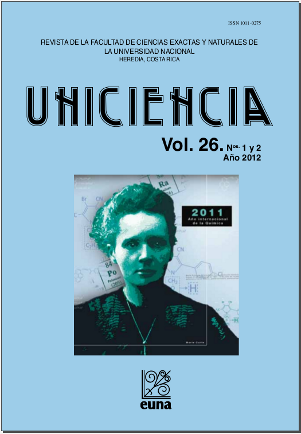Sociocultural context as a facilitator of student learning of function concepts in mathematics
Keywords:
Learning, context, motivation, culture, socio-culture, teachingAbstract
In Costa Rica, many secondary students have serious difficulties to establish relationships between mathematics and real-life contexts. They question the utilitarian role of the school mathematics. This fact motivated the research object of this report which evidences the need to overcome methodologies unrelated to students’ reality, toward new didactical options that help students to value mathematics, reasoning and its applications, connecting it with their socio-cultural context. The research used a case study as a qualitative methodology and the social constructivism as an educational paradigm in which the knowledge is built by the student; as a product of his social interactions. A collection of learning situations was designed, validated, and implemented. It allowed establishing relationships between mathematical concepts and the socio-cultural context of participants. It analyzed the impact of students’socio-cultural context in their mathematics learning of basic concepts of real variable functions, consistent with the Ministry of Education (MEP) Official Program. Among the results, it was found that using students’sociocultural context improved their motivational processes, mathematics sense making, and promoted cooperative social interactions. It was evidenced that contextualized learning situations favored concepts comprehension that allow students to see mathematics as a discipline closely related with their every-day life.Downloads
Published
Issue
Section
License
Authors who publish with this journal agree to the following terms:
1. Authors guarantee the journal the right to be the first publication of the work as licensed under a Creative Commons Attribution License that allows others to share the work with an acknowledgment of the work's authorship and initial publication in this journal.
2. Authors can set separate additional agreements for non-exclusive distribution of the version of the work published in the journal (eg, place it in an institutional repository or publish it in a book), with an acknowledgment of its initial publication in this journal.
3. The authors have declared to hold all permissions to use the resources they provided in the paper (images, tables, among others) and assume full responsibility for damages to third parties.
4. The opinions expressed in the paper are the exclusive responsibility of the authors and do not necessarily represent the opinion of the editors or the Universidad Nacional.
Uniciencia Journal and all its productions are under Creative Commons Atribución-NoComercial-SinDerivadas 4.0 Unported.
There is neither fee for access nor Article Processing Charge (APC)






